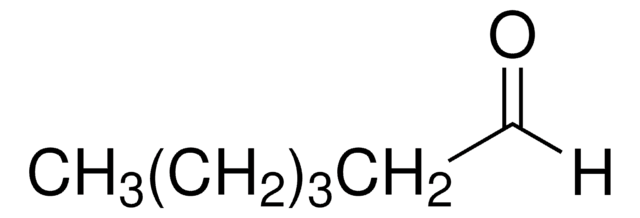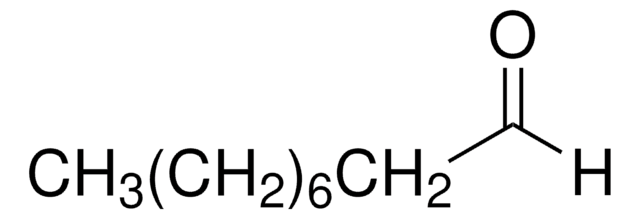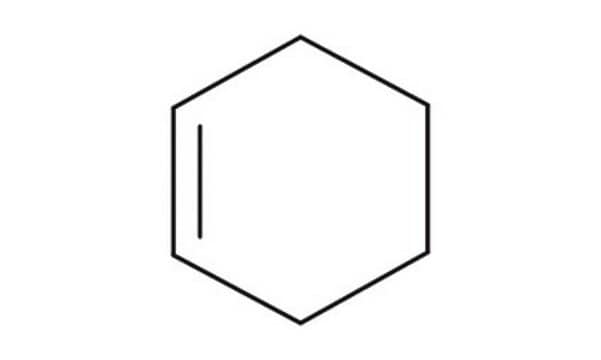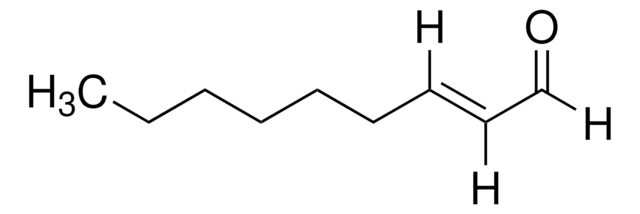18109
Hexanal
analytical standard
Synonym(s):
Aldehyde C6, Caproaldehyde, Hexyl aldehyde
About This Item
Recommended Products
grade
analytical standard
Quality Level
vapor density
>1 (vs air)
vapor pressure
10 mmHg ( 20 °C)
Assay
≥95.0% (GC)
shelf life
limited shelf life, expiry date on the label
technique(s)
HPLC: suitable
gas chromatography (GC): suitable
impurities
≤1.0% water
refractive index
n20/D 1.4035 (lit.)
bp
130-131 °C (lit.)
density
0.815 g/mL at 25 °C (lit.)
application(s)
cleaning products
cosmetics
flavors and fragrances
food and beverages
personal care
format
neat
SMILES string
CCCCCC=O
InChI
1S/C6H12O/c1-2-3-4-5-6-7/h6H,2-5H2,1H3
InChI key
JARKCYVAAOWBJS-UHFFFAOYSA-N
Looking for similar products? Visit Product Comparison Guide
General description
Application
Signal Word
Warning
Hazard Statements
Precautionary Statements
Hazard Classifications
Eye Irrit. 2 - Flam. Liq. 3 - Skin Irrit. 2
Storage Class Code
3 - Flammable liquids
WGK
WGK 1
Flash Point(F)
77.0 °F - closed cup
Flash Point(C)
25 °C - closed cup
Regulatory Listings
Regulatory Listings are mainly provided for chemical products. Only limited information can be provided here for non-chemical products. No entry means none of the components are listed. It is the user’s obligation to ensure the safe and legal use of the product.
FSL
Group 4: Flammable liquids
Type 2 petroleums
Hazardous rank III
Water insoluble liquid
ISHL Indicated Name
Substances Subject to be Indicated Names
ISHL Notified Names
Substances Subject to be Notified Names
JAN Code
18109-VAR:
18109-1ML:
18109-BULK:
Choose from one of the most recent versions:
Already Own This Product?
Find documentation for the products that you have recently purchased in the Document Library.
Customers Also Viewed
Articles
HS-SPME with Carboxen®/PDMS coated Nitinol fiber allows low MW analyte detection in light-exposed milk plastics.
Our team of scientists has experience in all areas of research including Life Science, Material Science, Chemical Synthesis, Chromatography, Analytical and many others.
Contact Technical Service









